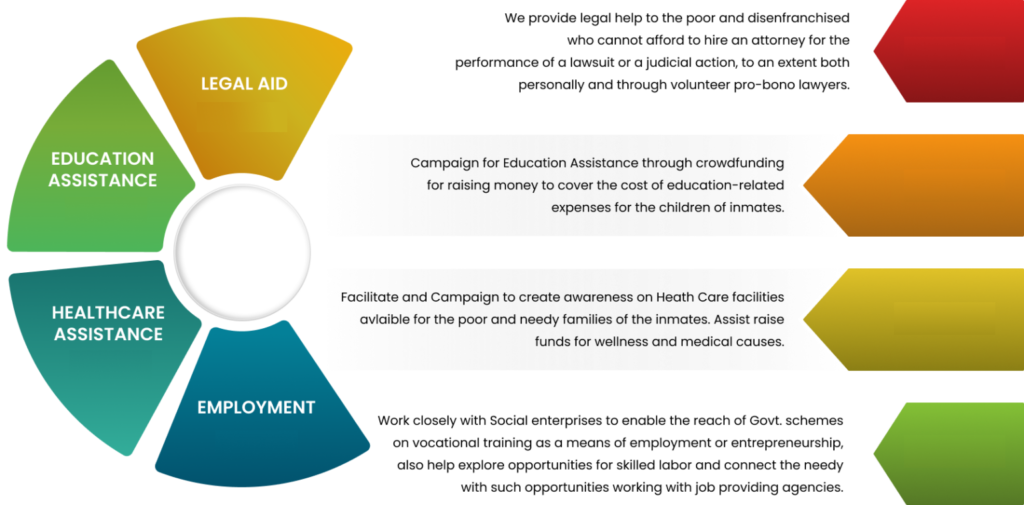How Nyaya Darpan Foundations Thrives to
Help “Families of the Inmates”
Help “Families of the Inmates”

FAQ's
MOST frequently ASKED questions about cyber crime
We understand you may have other questions too, that are not
covered here in this list, please write to us at info@nyayadarpan.com
and we will revert to you.
Indian prison detainees are divided into three categories: detenues, undertrials, and convicts. A “criminal prisoner under sentence of a Court or Prosecution” is referred to as a convict. A person who has been placed in judicial custody and a criminal case has been filed against them is considered to be an undertrial (trial is in process and not yet disposed off). Every individual held in custody under the direction of the appropriate authorities in accordance with the applicable preventative legislation is said to be detenue.
If a police officer or other person of authority feels you may be engaged in a crime, you may be detained or held for interrogation for a brief period of time without being arrested. According to Article 22(2) of the Constitution, “A person who is arrested must not be kept in jail without being notified of the circumstances of the arrest or denied the right to speak with and be represented by a lawyer of their choice. In the event of an arrest, the person should be produced before the magistrate within 24 hours.
This writ is used to free someone who has been detained or held against their will. The Court instructs the person thus detained to be brought before it so that it can assess the legality of his custody as a result of this writ.
A person under police custody will be held at the police station under the physical custody of police personnel. They will be kept in a prison by a magistrate while under judicial custody. Prisoners awaiting trial are in judicial custody, not police custody.
Beyond social stigma, they face multitude of challenges in the legal system too. At time they are harassed by the legal system during interrogation and also are suspected to be a party to crime. They also face economic hardship, family dynamics, discrimination, and emotional well-being and if they come from a poor background, often don’t get good legal representation too. Becomes difficult to get Bail and the person languishes in Jail.

Join us
Become a Volunteer
Volunteering may increase your satisfaction with life, self-worth, and confidence. You feel accomplished as a result of assisting others and the community.

Join us
Become a Donar
Giving is not about making a donation, its about making a
difference to a fellow human. Beyond donating money,
You can donate your time, effort, skill, and knowledge too..